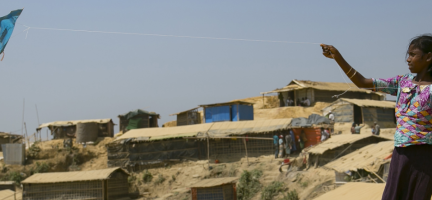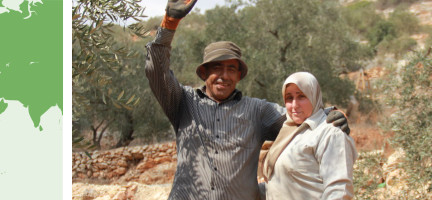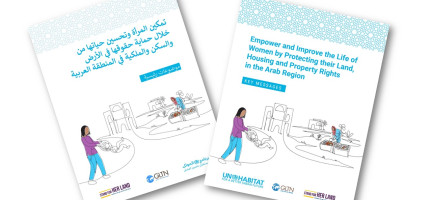Women’s land rights

The social and economic development of every society goes hand in hand with the social and economic development of women and the realization of their human rights. Reducing the gender gap and increasing women’s empowerment through improved access to housing, land, and property are among the land governance priorities in the region.
Gender-based inequalities find their roots in patriarchal cultural norms often disguised as religious principles. Such norms and practices impact many dimensions of women’s lives, including participation in the labour force, access to credit, and ownership or access to housing, land, and properties.
The Arab region has the highest gender gap[1] [OT1] globally (approximately 40 per cent), with Iraq, Yemen, and Saudi Arabia listed among the least-performing countries[2]. At the current pace, it will take about 142 years to close this gap[3] and even more to reach gender equality in property and inheritance laws that have not improved in the last fifty years [4].
There is no consolidated data on women’s ownership or access to land and housing in the region. However, estimates converge to a single-digit figure. Women’s share among agricultural holders in the region is less than 7 per cent[5], despite women’s major contribution to farming. Further, the total areas held by women are significantly smaller than the ones held by men, with women only holding 1 to 3 per cent of the land surface[6].
Overall, women are less likely than men to have legal housing, land, and property rights documents or to have their name included in the same, which negatively impacts their land tenure security, especially at times of divorce[7]. Displaced and migrant women and those living in conflict-affected countries face additional compounded challenges in accessing and enjoying land and property rights.
The approach
To increase women’s access to housing land and property rights in the Arab region, the Arab Land Initiative recommends to:
- Advocate and raise awareness on women’s housing, land and property rights
- Protect women’s land rights at the time of marriage
- Protect women’s inheritance rights
- Strengthen women’s rights of use to land and housing
- Provide practical support for women and women groups
- Increase women’s access to justice and dispute-resolution mechanisms
- Improve land administration
- Reform constitutions, policies and lawsLearn to work in contexts with multiple legal systems
- Empower and increase women’s participation in land-related processes
- Place additional focus on women in displacement and crises-affected contexts
- Promote research, capacity development, and knowledge exchanges on women and land.




